As part of the ASSET project, City and Regional project partners of ASSET organized and hosted workshops with relevant stakeholders, with support from the activity lead (Province of South Holland) and the commissioned external advisor, BVR.
The objective was to apply and test out BVR’s methodology of the Spatial Strategy of Circular South Holland on other scales (including city and megaregional) through the workshops. This was done by creating a Workshop guide on how to prepare a local/regional workshop which was used by the city/regional project partners when developing their workshops. The workshops differ in terms of format, length and actors involved, however they shared the same goals, such as: gaining a common understanding of challenges in respective city/region as it relates to CBE, building networks at various scales, exploring concrete spatial solutions, and contributing to the outcomes of project, actions and strategy.
4 workshops took place in total; the workshops in The Netherlands and Belgium in October/November 2024, and in Germany earlier in year during the ASSET on Tour excursion. Below a synopsis of each is provided including main insights.
Workshop by Province of South Holland & The Hague
On 1 October 2024, a workshop was organized by the Province of South Holland and the City of The Hague. The theme of workshop was circular built environment and construction sector in South-Holland. It involved both public and private organizations with 25 participants in total from various municipalities within the Province of South Holland, knowledge institutions, civil society organizations, as well as ASSET partners.
The overarching questions of the workshop were: think through the value chain of construction – How will it become more circular? What does this mean on the scale of the province and on the scale of the Eurodelta? The participants were divided into 2 groups, in which one group focused on bio-based strategies, while the second group focused on re-use/recycling strategies.
Main insights of this workshop:
- In order to attain a circular built environment in the Eurodelta, mass in supply and demand needs to be created together with Eurdelta partners, where strengths of the different areas of the Eurodelta are to be utilized, and the right preconditions are to be made
- The Eurodelta has everything it needs to become a global market leader in biobased production, knowledge and management
- In order to achieve a more circular construction chain, a change in all part of the chain is required
- The housing challenge in the Province of South Holland (to build 250,000 new houses by 2030 and has the task of renovating the current build environment) presents opportunities for both bio-based construction and the reuse of building materials
- The government has a major role to play in the transition to circular building chains such as setting preconditions, organising rules of play and permits, being a knowledge broker, and formulating a joint proposition of market, government and knowledge
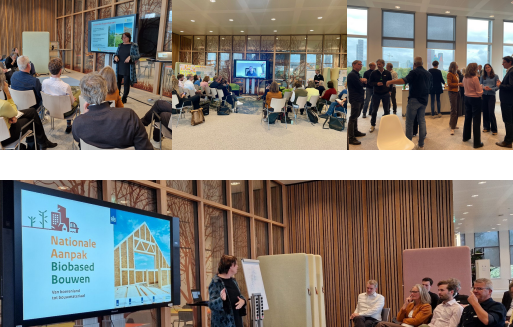
Photos during the Amsterdam workshop - taken by BVR
Workshop in Amsterdam
The workshop in Amsterdam consisted of an introductory lunch lecture and 2-half day sessions, which included a bus tour to local circular businesses on Day 1, and an interactive design session on Day 2 (one week later). The participants were mostly civil servants from the City of Amsterdam in the fields of of urban planning, infrastructure, project management, area development, and circularity, as well as the national government (Rijkswaterstraat), and ASSET partners.
The theme of the workshop was the development of a circular built environment (CBE) and the circular construction sector in Amsterdam and its surroundings. The interactive design session on Day 2 focused on 3 cases – large area developments along the waterfront of the IJ: Strandeiland, Haven-stad, and Hamerkwariter/NDSM – specifically to identify types of spaces needed for circular construction, to map out circular spaces needed in the future, to determine how to involve stakeholders and to brainstorm opportunities at higher-scale levels like the Eurodelta.
Main insights from this workshop:
- Circular consturction and smart construction logistics needs to be facilitated in area development projects
- Amsterdam Metropolitan Region should be developed as a Circular Ecosystem in terms of market, logistics, and processing
- The Eurodelta to developed using both the bottom up and the top down approaches
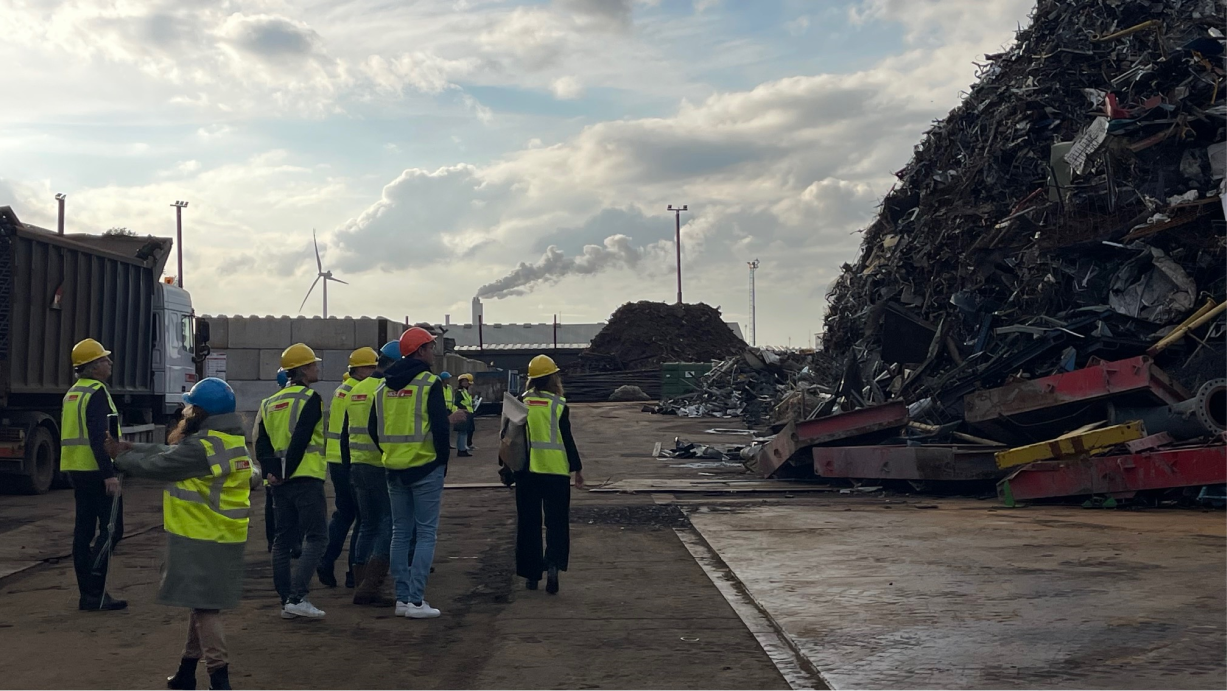
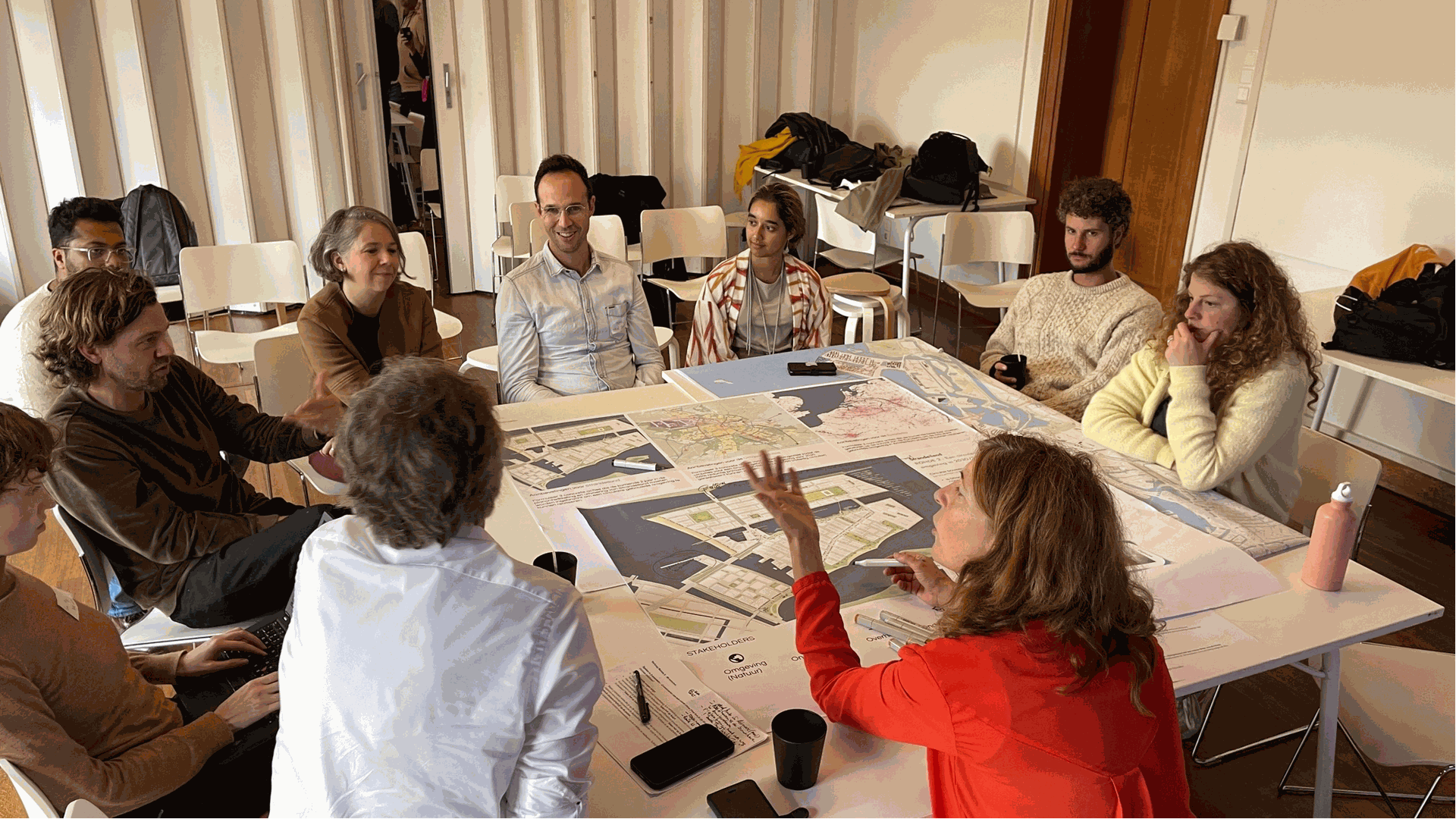
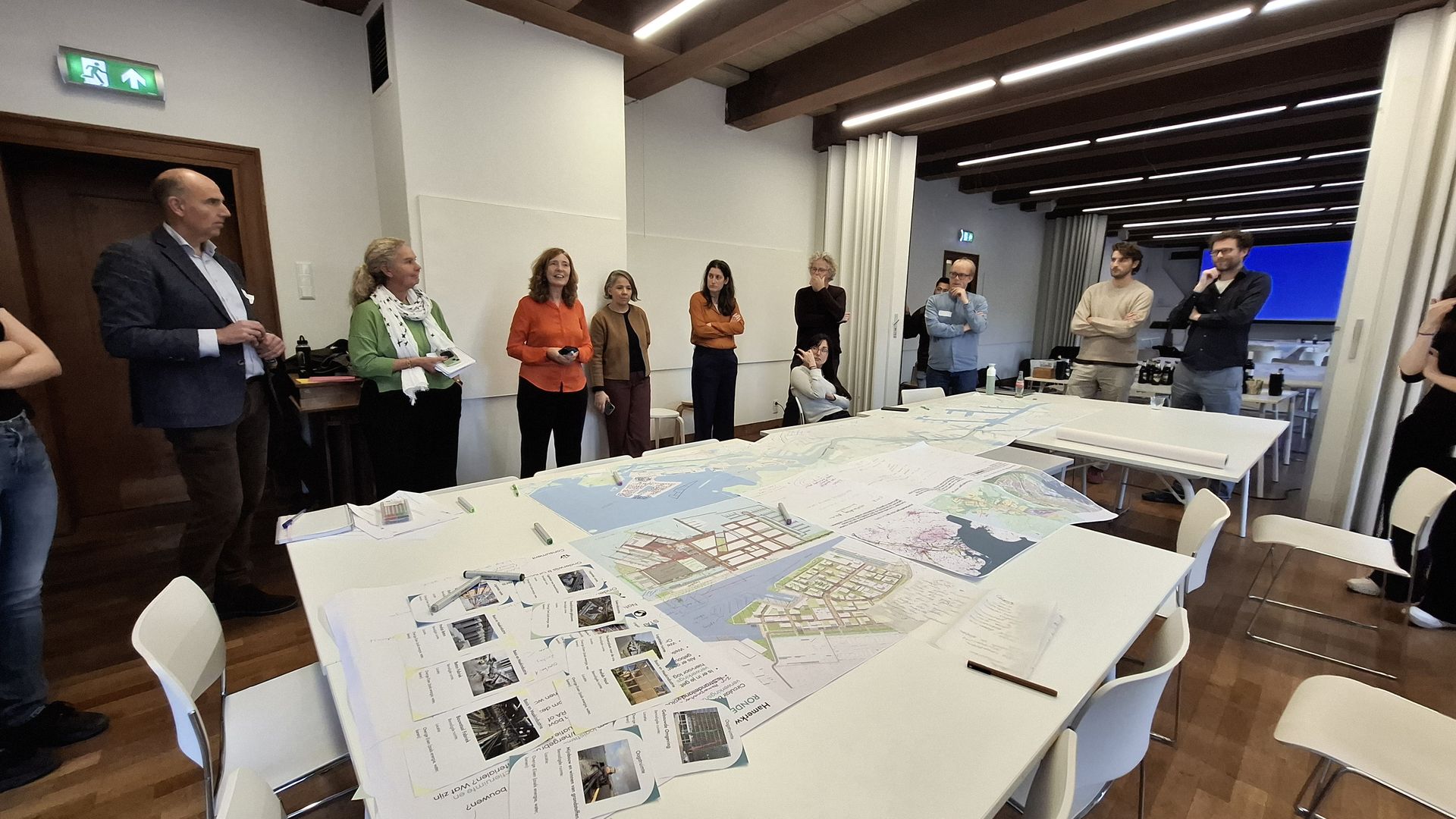 Photos of the Amsterdam workshop - taken by Bas Horsting & Jamila Jones
Photos of the Amsterdam workshop - taken by Bas Horsting & Jamila Jones
Workshop in Brussels
In November
2024, perspective.brussels and Brussels Environment hosted their workshop in Brussels to
explore how inter-regional cooperation can tackle challenges in the circular
economy for the construction sector. It involved academics,
private economic actors & public local administration. The
workshop delved into key questions:
1) What
do different sectors need to advance circular practices?
2) How
can urban, regional, and supra-regional spaces support the transition?
Participants also examined Schaarbeek-Vorming, a former industrial hub in northern Brussels, as a
model for circular planning.
Main insights from this workshop:
- Circular Economy in action: Many interesting initiatives are already in place in the Brussels region, such as smart systems for recycling construction waste and the development of material hubs. Upscaling these efforts is critical to closing the ‘planning gap’ between the current and future circular built city.
- Expanding the vision to the Eurodelta: Collaboration within the Eurodelta offers opportunities to share resources across regions, supported by sustainable transport and data systems. This supra-regional approach could transform the way materials flow and meet the region’s circular ambitions.
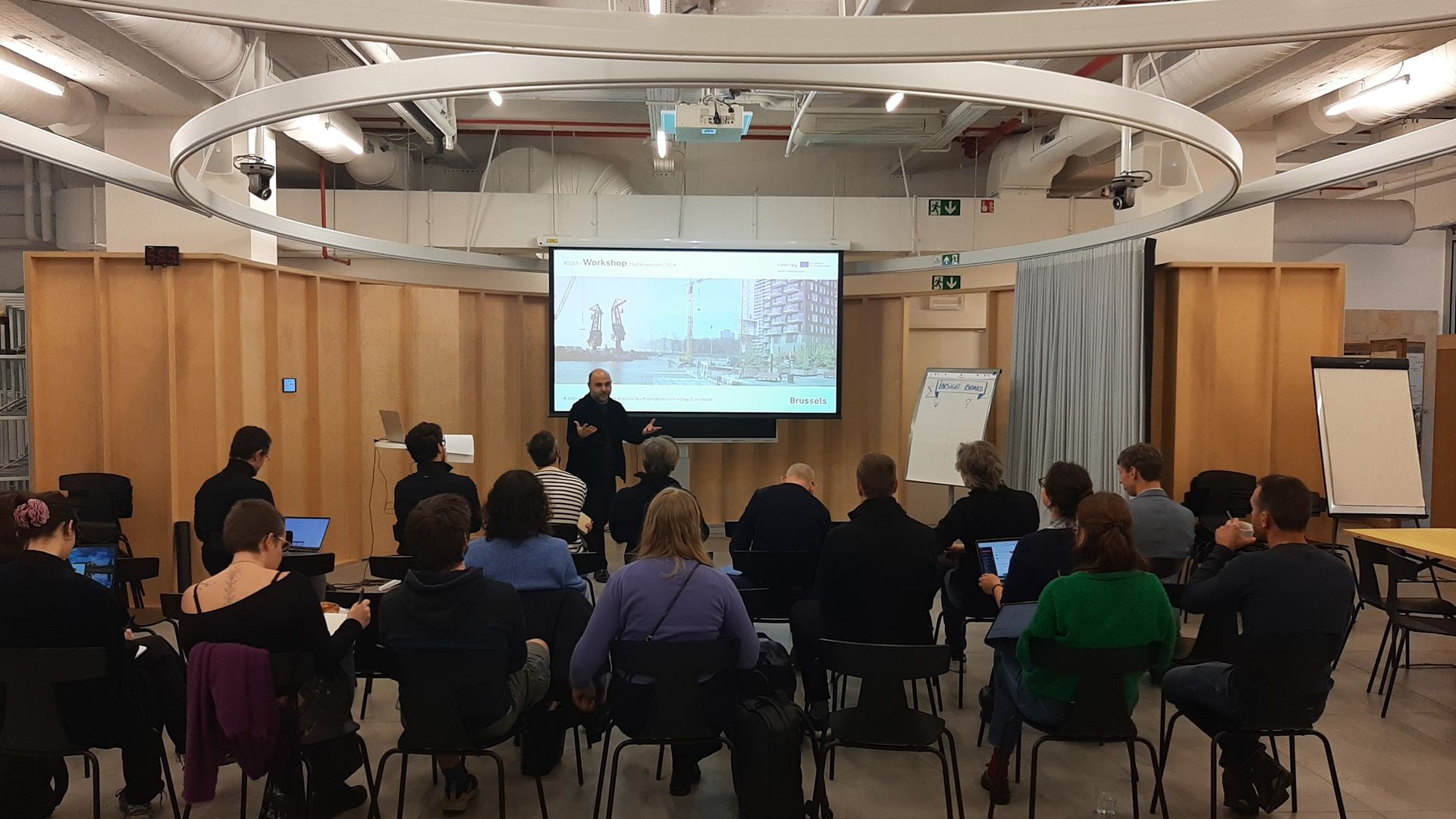 Photo of the Brussels - taken by Cécile Houpert
Photo of the Brussels - taken by Cécile Houpert
German Workshop
The German workshop took place earlier in the year as part of the ASSET on Tour excursion in Krefeld. The participants included several parties from local admistration, different enterprises, Healthy Building community members, and ASSET partners.
The format of the workshop: 3 roundtables, each focusing on a specific circularity theme – Circular Building, Circular Planning & Circular Strategy.
Main insights from this workshop:
- The sustainabile building initiatives of the city of Krefeld has shifted to now have an additional focus on health and cradle-to-cradle.
- Cross-border cooperation especially with Dutch partners already exists and is strong
- When it comes to Circular Building, a lot is already happening, but it not very well coordinator or has a clear focus.
- When it comes to Circular Planning, the main message was that scale matters – many companies already work at the Eurodelta scales (e.g. TSR in Duisburg).
- Linking spaces (e.g. hubs, harvesting, mining areas) need to be located in close proximity to building projects/user spaces and have both storage and processing functions.
- When it comes to Circular Strategy, it was determined that it is a 'chicken-egg' situation because the consutruction sector is conservative while cities need to be the leaders of change, but it is complex task.
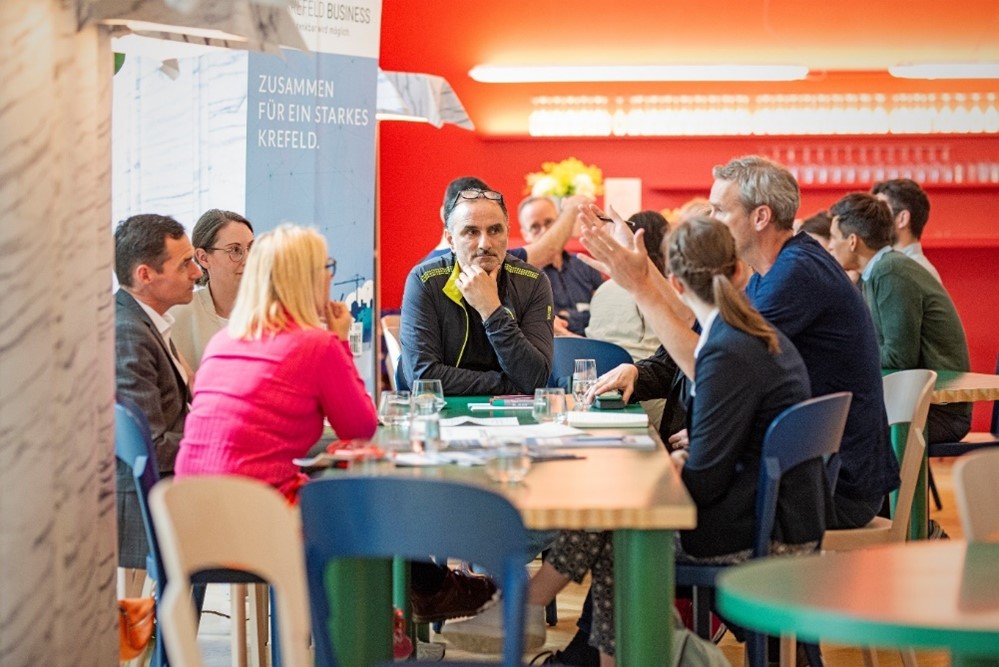 Photo of the workshop in Krefeld - taken by Simon Erath
Photo of the workshop in Krefeld - taken by Simon Erath
For more information on the workshops in more detail including lessons learned, please refer to the synthesis report that can be found in the Outcomes section or click here to go directly to the download page.